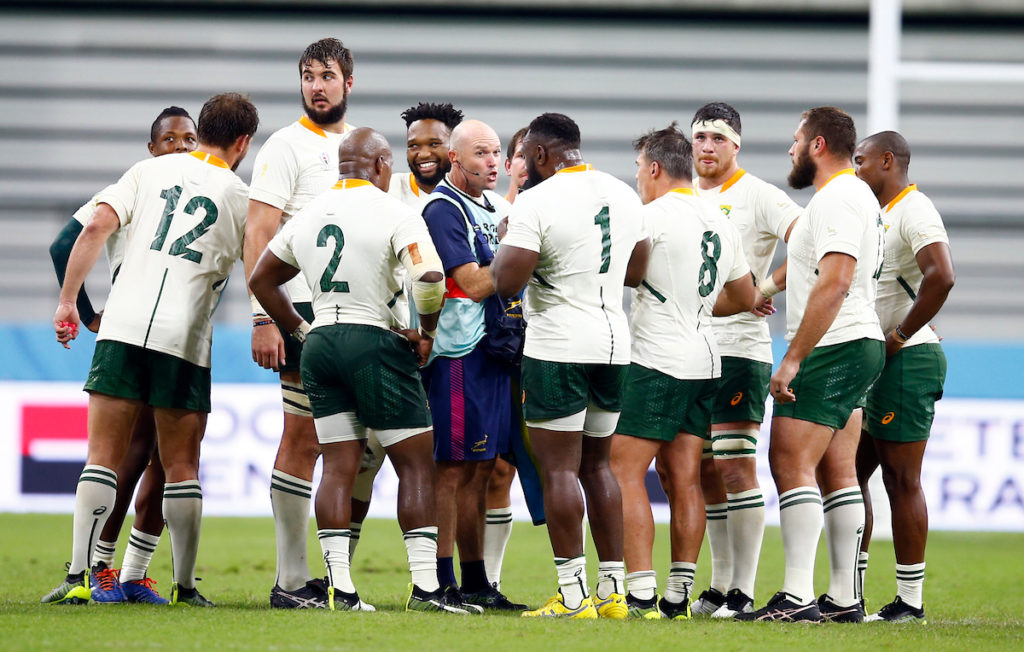A 21-day contract escape clause allowing for local players to explore overseas options may have made for some ‘nervous employers’, but was seen as part of the solution in ‘collective bargaining’ negotiations.
READ: Sliding scale pay cuts confirmed for SA rugby
The new 21-day escape clause has been a hot talking point in the finalised deal for the SA rugby industry which is set to see players contributing 12.5% to a wide-ranging plan to cut up to R1 billion from its budget over the next eight months.
While players and their agents might feel aggrieved by the clause, it is far better than most other major nations who do not have a relative clause in their contracts.
‘We put the release clause in there because the transfer window in Europe is open now,’ chief executive of MyPlayers, Eugene Henning told Daily Maverick.
‘But in reality, very few players will be able to find contracts under the current conditions.’
Global leagues like England and France have seen widespread cost cutting measures implemented which means the transfer market will not be a hive of activity.
‘It was a clause that also put the entire rugby industry at risk because, in theory, all 717 players could exercise that option, which would see the complete collapse of the rugby industry. Obviously, that scenario is unlikely, but theoretically, it could happen, and I can tell you there were some nervous employers,’ added Henning.
In normal circumstances, talks regarding early release from deals occur on a one-on-one basis but the unique issues facing the rugby industry have seen the needs of the industry placed as the primary concern.
The Daily Maverick report states that ‘a collective agreement between the employers and players would not have materialised had the players insisted on a longer contract termination period’.
The 21-day termination window began on 24 April and will run until 14 May.
‘Collective bargaining was attractive in this situation because what has been happening is no one’s fault. You can’t sue coronavirus, you can’t interdict or arrest it, and no single entity is accountable for where we find ourselves. The only sensible thing to do was to take a collective approach because this is not a result of human error. Collectively it was better for players to be united.
‘If players and staff individually entered into negotiations and looked at their positions under current labour law, it is a bleak picture. Labour law allows for steps such as short-time pay, unpaid leave and in extreme cases retrenchment. There are 1500 employees in the rugby industry of which we represent approximately half.
‘We could have left everyone to themselves but we instead took the approach of finding a solution that would cause a little pain across the board but save jobs.’
ALSO READ: Pro14 under threat amid coronavirus
Photo: Kim Ludbrook/EPA





